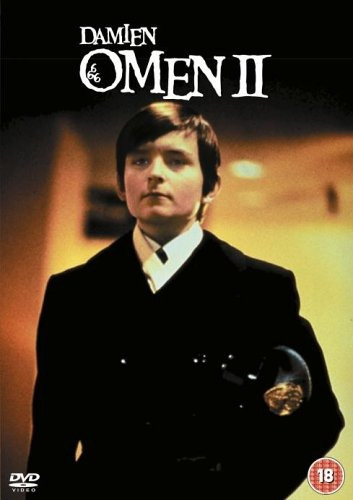If you are a believer (as I
firmly am) that kids do not become fully human until they have reached the age
of, say, 25 – then, you will, perhaps, recognize an ethical problem. If these creatures are not human in the full
sense of that word, is it even fair to ask if they are capable of being ‘evil’
which, after all, necessitates a human sense of recognizing that concepts like ‘good’
and ‘evil’ actually exist?
We don’t say that ‘brute’ beasts
are evil, we just question their instincts.
Sharks (even allowing for Benchley) are not evil creatures; they are not
good either – they just are.
So, there is surely a case for
saying that apprentice humans just ‘are’ as well.
And yet, and yet.
Let us consider a test situation. In this part of the world there is a game
that kids play. It is called ‘Marco Polo’
and is simplicity itself to play. The
rules are that when one person says “Marco!” everyone else replies “Polo”. And that is it. That is the game. And kids play it with manic gusto. And go on playing it. And on, and on.
There is a sort of genius about
it. How, you might say, innocuous a
game. Where is the harm in it? Well, let me tell you, if you have listened
to kids raucously ‘playing’ this game around a swimming pool for what seems
like hours you, as an adult begin to pray for death: either the kids or
yourself, after a while it doesn’t really matter. All you want is for it to stop.
And this is where the genius part comes
in. How can you, seriously, tell kids to
stop? Who is it harming? And, of course, you know that if a kid
suspects for a moment that something they are doing is irritating then there is
no inducement on earth that will make them stop. And what sort of idiot would you be to angrily
tell kids to stop saying the name of the great explorer? Perfect.
The kids have created something that cannot be stopped without making
the person stopping it appear like a crazed idiot. And, once you have suffered from an extended “Marco
Polo” just a single mention of “Marco” brings back all the dread that you have
previously suffered – instantly.
Do they do it to annoy because
they know it teases? I’m not sure. Kids love doing it. It gives an immediate sense of community; it
gives form to play; it allows the youngest to get an automatic reaction from
elder; it establishes territory by claiming sonic space; it gives voice to
youth; it is comforting – and I bloody hate it.
Hate it.
I am not sure if it is hell or purgatory
where you would find yourself around a pool with kids playing “Marco Polo” for
ever, but the adjective hellish seems to be not inappropriate.
The question of blame obviously
centres on whether or not the kids know what they are doing. If they do not, then they only have to wait
until they are 25 when they will realize just how awful they have been for the
past two and a half decades. If they do
know what they are doing, then it answers the question at the top.
And, don’t forget Damien!
On a completely unrelated topic –
though, come to think about it, there could be a tenuous link using the concept
of ‘youth’ – the words of a Christmas carol came back to me as I trudged off
the beach through the soft sand.
Never let it be said that my time
as a (moderately) angelic looking choir boy in Cathays in Cardiff was
wasted. I had a good boy soprano voice
and found the high notes relatively effortless to reach.
Being in a choir means that you tend to pick
up new tunes relatively quickly, in much the same way as a (struggling) trombone
player in school orchestras encourages to you get to know orchestral pieces after
a couple of rehearsals – well, as trombone player you usually have so few notes
to play that you may as well spend the time waiting for your entry by listening
to the music that other players are creating.
Although I cannot say that I
positively enjoyed my time in the choir (perhaps it was something to do with
the stiff, white, plastic collars we had to wear with cassock and surplice) I
did get to know a great deal of ‘sacred’ music, and the lyrics.
There were some that we didn’t really
have to learn, and those were carols. Or
should I say, we did get to learn something, because we had to know more than merely
the first verses. Just like being in the
Cubs, where the one thing that I retain from my time there is knowing the
second verse of the English national anthem, I also know more of the words of
more hymns that I ever get the chance to sing.
Anyway, back to the trudging. Given my thrombosis, embolism etc etc I feel
I have a real and authentic reason not to like walking, and have a fully
justified condition to find the easiest way to do things that demand physical
effort.
So, trudge, trudge, trudge
(resenting every step) when the words of one particular carol came back to me
about a youngster whingeing about having to make his way through thick snow,
following behind his master, who responds by saying:
“Mark
my footsteps, my good page
Tread
thou in them boldly . .
In
his master’s steps he trod
Where
the snow lay dinted
Heat
was in the very sod
Which
the saint had printed”
Works with sand too. Where Toni left a footprint, I trod and, lo
and behold, it was a good sight easier than making my own flat-footed way.
Therefore, Good King Wenceslas,
not only gave me an easier way of walking through soft sand, but it also
allowed angelic looking little boys to sing the word “sod” inside a church!
Of such things are memories made.








